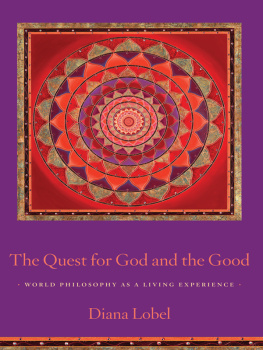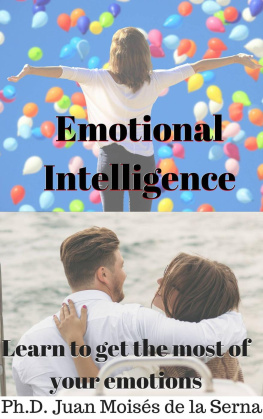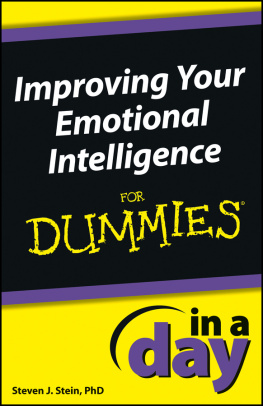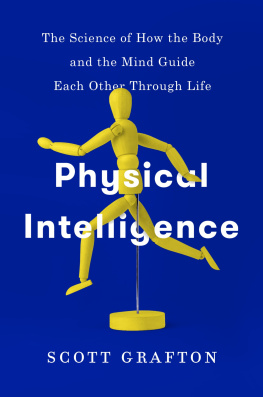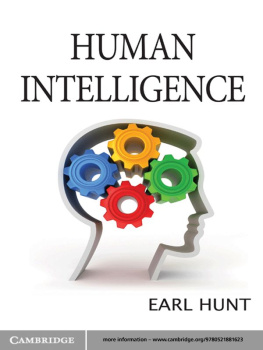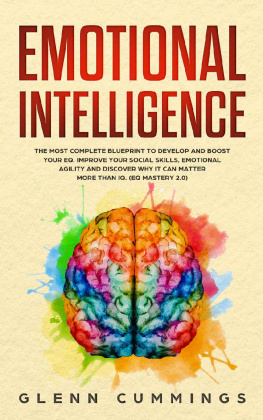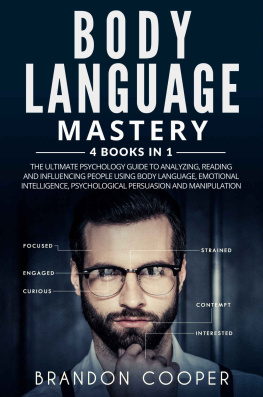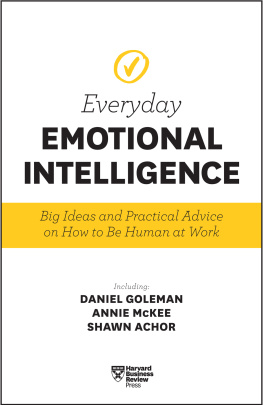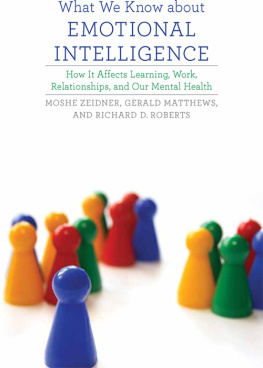Lobel - Sensation: The New Science of Physical Intelligence
Here you can read online Lobel - Sensation: The New Science of Physical Intelligence full text of the book (entire story) in english for free. Download pdf and epub, get meaning, cover and reviews about this ebook. year: 2014, publisher: Atria Books, genre: Religion. Description of the work, (preface) as well as reviews are available. Best literature library LitArk.com created for fans of good reading and offers a wide selection of genres:
Romance novel
Science fiction
Adventure
Detective
Science
History
Home and family
Prose
Art
Politics
Computer
Non-fiction
Religion
Business
Children
Humor
Choose a favorite category and find really read worthwhile books. Enjoy immersion in the world of imagination, feel the emotions of the characters or learn something new for yourself, make an fascinating discovery.

Sensation: The New Science of Physical Intelligence: summary, description and annotation
We offer to read an annotation, description, summary or preface (depends on what the author of the book "Sensation: The New Science of Physical Intelligence" wrote himself). If you haven't found the necessary information about the book — write in the comments, we will try to find it.
Lobel: author's other books
Who wrote Sensation: The New Science of Physical Intelligence? Find out the surname, the name of the author of the book and a list of all author's works by series.
Sensation: The New Science of Physical Intelligence — read online for free the complete book (whole text) full work
Below is the text of the book, divided by pages. System saving the place of the last page read, allows you to conveniently read the book "Sensation: The New Science of Physical Intelligence" online for free, without having to search again every time where you left off. Put a bookmark, and you can go to the page where you finished reading at any time.
Font size:
Interval:
Bookmark:

Thank you for downloading this Atria Books eBook.
Join our mailing list and get updates on new releases, deals, bonus content and other great books from Atria Books and Simon & Schuster.
C LICK H ERE T O S IGN U P
or visit us online to sign up at
eBookNews.SimonandSchuster.com
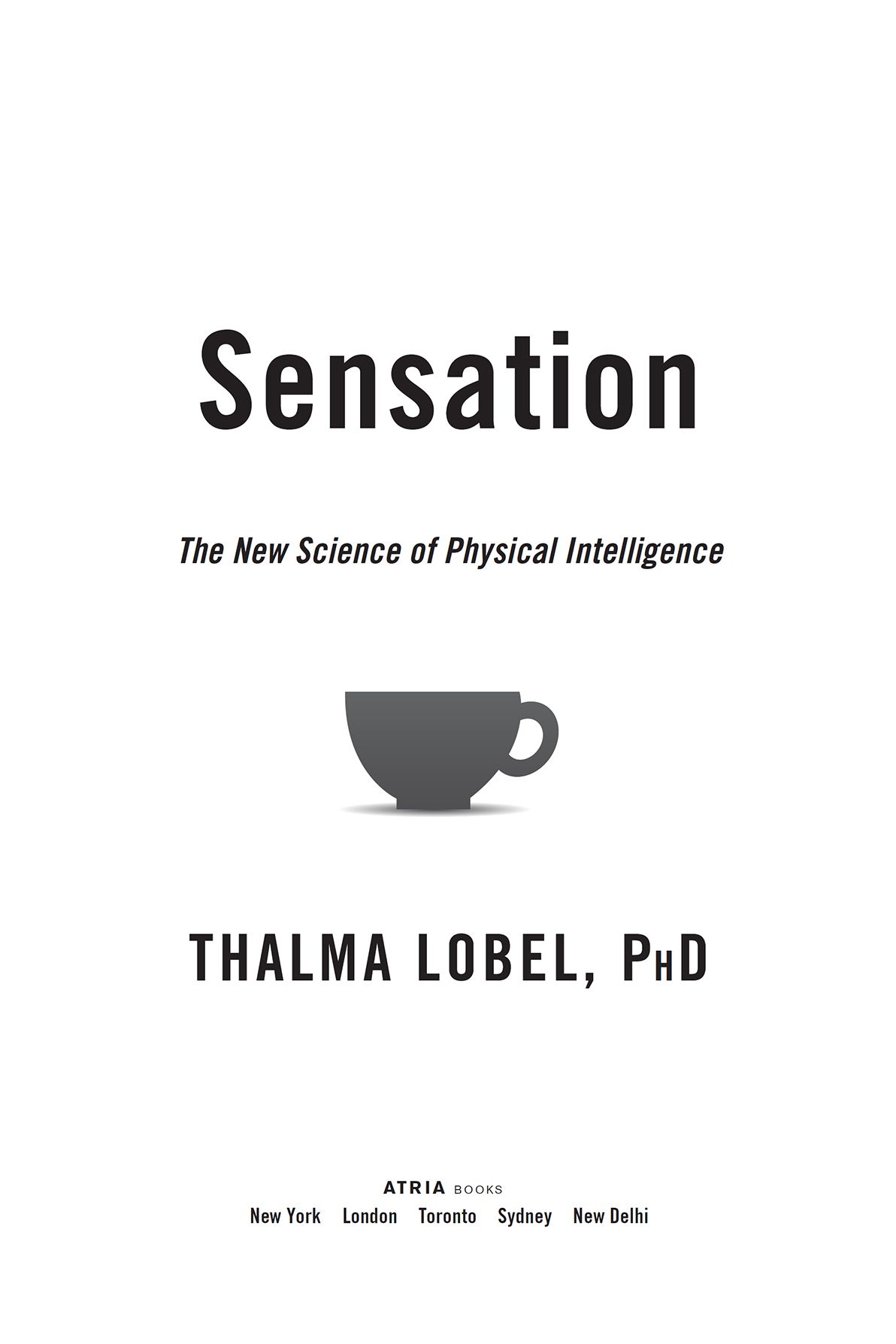
To my beloved son Dani
To my beautiful Danielle, Elinor, Natalie, and Dean
The Tangled Web Our Senses Weave
In 2005 I traveled with four friends to Guatemala for two weeks. In a great trip filled with many exciting new experiences, the highlight was a visit to Tikal National Park to see archaeological sites dating back to the Mayan civilization.
In the jungle cottages where we stayed, each of us was given a separate room. My husband was not able to travel with me, so I was alone in the room. There was no electricity from 10:00 p.m. until the morning. Unable to sleep soundly, I awoke at 2:00 a.m.to utter and total darkness. It was pitch-black. I had no flashlight or cell phone next to my bed, and I saw nothing. Nothing! No distant streetlamp, no moonlight, not a star through the window. I could not hear anything eitherthe jungle around me was completely still. This was the closest I had ever been to sensory deprivation. It was a most unpleasant experience.
At dawns first light, I got dressed and ran outside. With the sun on my face, hearing the chatter of birds, I felt reborn! No other person was in sight, but I reveled in the beauty and colors of nature and was delighted when a group of armadillos, an animal I had never before seen, ambled by. I was so grateful that life was not as barren and blank as it had seemed in that dark room. In those brief hours of darkness, I had come to realize, in the most emphatic way, the vital connection between our physical senses and our mental states.
It is crucial for us to be able to sense the external world, but at the other extreme from sensory deprivation is sensory overload, which can come from living and working in a big city. The urban environment is relentless and bustlingscurrying pedestrians, aggressive drivers, lumbering trucks and choking exhaust, kamikaze bike messengers, splashy window displays, the unbroken skyline of hard-edged buildings, the screaming heat, and densely packed bodies. I for one love cities like New York, Los Angeles, and Tel Aviv, where I live, but sometimes even I need to get away from it alljust for a while. Unlike me, other people get agitated by too much stimulation and prefer quieter, more natural landscapes in the suburbs or countryside.
Between these two poles lies an entire spectrum of stimuli. Total sensory deprivation and stimulus bombardment are both bad for us. Yet wherever we are, we are constantly exposed to environmental stimuli and cues. We touch things that have different temperatures and textures, we smell good and bad odors, we see myriad colors, and we lift objects to sense their weight. We experience much of our world quite consciously through our senses. But without noticing it, we are also unconsciously influenced in the most amazing ways by the physical experiences our senses convey.
In this book, I will take you on a systematic tour of our senses and reveal how your sensory experience of the world influences the rational mind you believe you have, as well as the independent thoughts you believe you make. Ill explain why warm temperatures make us temporarily friendlier and the color red causes us to perform more poorly on tests. Ill show that drawing close dots on a Cartesian graph makes us feel more emotionally close to others and that rsums fastened to heavy clipboards make a better, more professional impression. And Ill demonstrate why clean smells, like that of Windex, promote cleaning behavior, while showering before a test is more likely to lead to cheating. In case these statements sound impossible, I have to tell you that these findings have been proven repeatedly in lab experiments and published in some of the best peer-reviewed academic journals in the world. These astonishing facts actually point to a new way of understanding how our minds work. And Sensation presents these studies to you, the general reader, for the first time.
This book is about the way our sensations influence us. Unseen cues that surround us may cause us to lose sleep, fail a test, and even fall in love. In the Hans Christian Andersen fairy tale The Princess and the Pea, only a princess is sensitive enough to feel a pea placed underneath twenty featherbeds and twenty mattresses. But in fact we are all extraordinarily sensitive to the stimuli in our environment. Like the princess, we may not always know what disturbs us under our radar, but we are nonetheless affected.
Many of the effects of these triggers are short-lived; they glow ephemerally in the subconscious for a little while but dont change us permanently. Yet what is brief is not necessarily unimportant. Our actions under these triggers influence can make a significant difference in our effectiveness in business meetings, classrooms, and sports. They can affect how we feel on first dates and how were perceived in an interview for a job. This book will raise your awareness of these triggers, or peas, and their effectson both your own and others thoughts and actions.
* * *
My research into effects of their environment on people began, basically, when I was eighteen years old and a soldier in the Israel Defense Forces, where I was stationed in a classified bunker several stories belowground. I was in my first year at my university, studying psychology, and would work forty-eight-hour shifts at the base so I could leave to attend class, where I would sit through lectures about the human mind under extreme conditions. With a slight sense of irony, I would then return to a metal cave to work without sleep for another two days straight. My life was basically an experiment.
At the base, we lived and worked under relentless fluorescent lights, breathing the same recycled air over and over. We napped in small pitch-black rooms, where, during most of my time underground, I lost track of day and night. Immersed in psychology at the university when I was aboveground, I couldnt help but study every facial expression and odd behavior of my fellow soldiers whenever I returned to the bunker. I didnt realize it at the time, but I was already fascinated by the way our environments shape and influence us. The world became a lab to me.
I received my degree in clinical psychology and followed it with postdoctoral studies at Harvard. As a professor of psychology, I studied how stereotypes, personality characteristics, and culture influence our behavior, specializing in the psychology of gender identity in both children and adults. I designed interesting experiments that were published in prestigious journals, and I truly loved what I did.
* * *
Then, in 2008, I read a study by Laurence Williams and John Bargh in Science .thoughts, perceptions, and judgments. They moved me in a way that no studies ever had before. Reading them reminded me of how, after reading a book about psychoanalysis as a senior in high school, Id been thrilled to discover the power of the unconscious to influence our minds and bodies. The stories of patients who had suffered from physical symptoms such as paralysis or vision disturbances but were cured by talking techniques, by becoming aware of unconscious drives that caused their symptoms, had inspired me to become a psychologist. Now here was another kind of revolution in psychology.
Font size:
Interval:
Bookmark:
Similar books «Sensation: The New Science of Physical Intelligence»
Look at similar books to Sensation: The New Science of Physical Intelligence. We have selected literature similar in name and meaning in the hope of providing readers with more options to find new, interesting, not yet read works.
Discussion, reviews of the book Sensation: The New Science of Physical Intelligence and just readers' own opinions. Leave your comments, write what you think about the work, its meaning or the main characters. Specify what exactly you liked and what you didn't like, and why you think so.

